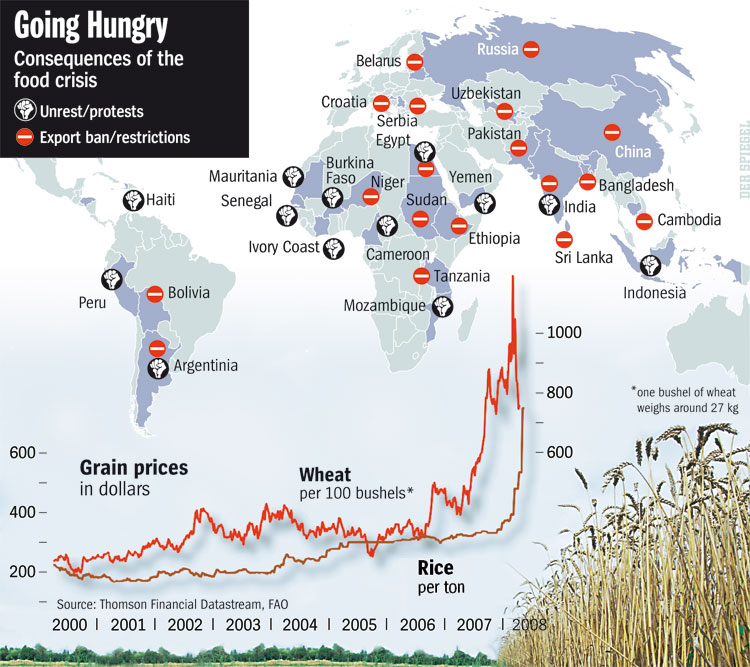« March 2008 |
Main
| May 2008 »

For the complete article by Ben Macintyre go here.
In our Wiki-world, first-hand knowledge seems unnecessary and the story more important
Mrs Mortimer’s odyssey was truly remarkable - between 1849 and 1854, she published three volumes of travel writing, covering Europe, Asia, Africa and the Americas, each larded with her own special brand of disdain. The Portuguese “the clumsiest people in Europe”; the Welsh “not very clean”; the Zulus “a miserable race”.
Favell Lee Mortimer held her Victorian readers spellbound with her colourful descriptions of foreign lands and their benighted inhabitants. But what made Mrs Mortimer’s attitude to foreign countries even more extraordinary was that she had never been to any of them. Mrs Mortimer wrote her entire travelogue from her drawing room in England. Apart from a childhood trip to Paris and Brussels, she never set foot outside this country and had no wish to - already convinced, as she was, that abroad was full of all those clumsy, unhygienic and unhappy foreigners.
Mrs Mortimer’s spiritual heir is the former Lonely Planet writer Thomas Kohnstamm, who cheerfully admitted this week that he had written a section of the Colombia guide without having visited the country. Bogus travel writing has a long and inglorious history, but in another way Kohnstamm is representative of a wider and more modern malaise: writers reviewing books they have not read, politicians claiming to have braved dangers they never faced, novelists depicting places they have not seen, memoirists describing a past that never happened, journalists making up stories about people that never existed, and, most pernicious of all, writers simply cutting and pasting words they have not written.
In most cases this is not active deception, but rather a strange cultural blurring of truth and fiction, the confusion of first-hand knowledge with second-hand electronic cuttings, the elision of personal experience with a reality borrowed or imagined from elsewhere.
This is the victory of information over experience. In Wiki-world, where so much semi-reliable information is available at the push of a button, there is no need to see something first-hand in order to be able to describe it with conviction and authority. A comparison of Paris guidebooks reveals entire chunks of identical text for some tourist spots: why actually visit somewhere to find out what it is like when one can merely paste together a version of reality?
Since we moved in our new home in the middle of February, I have been immersed in beautifying and organizing our lovely nest. All my creativity and energy has been focused on my domestic responsibilities, leaving very little time to devote to chicken-scratch and my writing. And so, I begin today with a new creative strategy. For the rest of the week, I am going to THINK LIKE A FOOL. It’s spring and it’s time to shake things up around here.

Image courtesy of: Creative Whack Pack

Celebrate Earth Day by greening your fork. Find: Good Food. Read: 20 ways to green your fork this Earth Day.

Body Service ~ By Paula Marantz Cohen
I knew something was in the air when the local hair salon started calling itself a day spa. Now all the blue-haired old ladies in town are going to be able to get a Brazilian wax.
When I was growing up, my mother used to go twice a month to the beauty parlor. That was what it was called then — not the hair stylist or even the hair salon, all latter-day terms. She would have her hair cut, colored, or coiffed, and sometimes she would get a manicure. But hair and nails were the extent of it. The body that lay in between was off limits. Caring for that — whatever it might entail — happened in the privacy of the home.
Then, in the 1980s and ’90s, that once-private expanse of the body opened itself to professionals. An array of services sprouted to this end: facials not just for the face, but for the hands, the neck, and the back (yes, there are “back facials”); massages and corollary treatments with stones, mud, and exotic substances; and waxing for every nook and cranny you can imagine — and some you can’t unless you have a very rich imagination.
When I initially began to think about this trend, it seemed to reflect an increased comfort with the body. After all, to let professionals touch you in the way required for a Brazilian wax is not to be a prude. It also seemed to me that bodies without clothing were everywhere. Not just on TV and the Internet, but in the world at large. My female students, for example, displayed an astonishing amount of décolletage, as did the 70-year-old ladies I bumped into in the supermarket. This suggested an exceptional level of comfort with this portion of the anatomy among a very wide age range.
But a friend pointed out that the exposed body nowadays is a far cry from the exposed body of the 1960s. That was the era of hairy underarms and legs, frizzy unkempt hair, and bra-less breasts that sagged under macramé T-shirts. Compare this to the perfect orbs that protrude like hothouse melons from the tank tops of 70-year-olds. “Let it all hang out” has been replaced by “let it all be nicely exhibited.” Walt Whitman (and his hippie successors) sang the “body electric;” we sing the “body electrolysis” — also, siliconed and liposuctioned.
Read: The Fury of the Poor ~ By SPIEGEL Staff
Around the world, rising food prices have made basic staples like rice and corn unaffordable for many people, pushing the poor to the barricades because they can no longer get enough to eat. But the worst is yet to come.


By Rabih Alameddine, from the LA Times.
All living languages are promiscuous. We promiscuous speakers shamelessly shoplift words, plucking bons mots and phrases from any tempting language. We wear these words when we wish to be more formal, more elegant, more mysterious, worldly, precise, vague. They flash on our fingers like gaudy rings, adorn our hair, warm our necks like rich foreign scarves. They become our favorite trousers, the shoes we cannot live without, our way of describing illness to our doctors, declaring love to our lovers, formulating policies, doing business. We believe we own them and are frequently astonished to discover their original roots in another language.
English, a mongrel from the start, greedily helps itself to foreign words more than any other. The Oxford English Dictionary lists more than 500,000 of them, whereas German has about 185,000 and French fewer than 100,000, according to “The Story of English” by Robert McCrum, William Cran and Robert MacNeil. Give us your tired, your poor, your fabulous words yearning to be free. We’ll take them.

By Rita Wilson, Huffington Post Blog
Once every few years, Greek Easter falls the same week as “American Easter,” as it was called when I was growing up. In order for “Greek Easter” to be celebrated the same week as “American Easter”, Passover has to have been celebrated already. We Greeks don’t do Easter until after Passover, because how can you have Easter before Passover? Jesus went to Jerusalem to celebrate Passover, after all. Unless it is one of the years where the two holidays align. Like this year.
Here are some of the things that non-Greeks may not know about Greek Easter: We don’t do bunnies. We don’t do chocolate. We don’t do pastels. We do do lamb, sweet cookies, and deep red. The lamb is roasted and not chocolate, the sweet cookies are called Koulorakia and are twisted like a braid, and our Easter eggs are dyed one color only: blood red.
There is no Easter egg hunt. There is a game where you crack your red egg against someone else’s red egg hoping to have the strongest egg, which would indicate you getting a lot of good luck.
Holy Week, for a Greek Orthodox, means you clear your calendar; you don’t make plans for that week at all because you will be in church everyday, and you fast. Last year, in addition to not eating red meat and dairy before communion, my family also gave up sodas for the 40 day Lenten period. During one particularly stressful moment, there were many phone calls amongst our kids as to whether or not a canned drink called TING, made with grapefruit juice and carbonated water was, in fact, a soda and not a juice, which our then 10 year old decided it was, so we had a Ting-less Lent.
No matter where I find my self in the world I never miss Easter, or as we call it, Pascha. I have celebrated in Paris, London, New York City, Los Angeles, and in Salinas, California at a small humble church that was pure and simple.
When we were kids, our parents would take us, and now as parents ourselves we take our children, to many of the Holy Week services including the Good Friday service where you mourn the death of Jesus by walking up to the Epitaphio, which represents the dead body of Christ, make your cross, kiss the Epitaphio, and marvel at how it was decorated with thousands of glorious flowers, rose petals and scents like incense.
Note: This was originally posted last year in the Washington Post under the title: Why Easter is Greek to Me: Xristos Anesti!

Andrew Miller is worried, and bracing himself for The End Of The World As We Know It … From INTELLIGENT LIFE magazine, Spring 2008
When I was at school, in the mid-1980s, my teenage friends and I would sometimes talk about what we’d do if the three-minute warning sounded. Most of us had detailed schemes for ultra-violence and revenge, often against the school librarian. But one boy, I remember, had alternative plans for the last moments before nuclear Armageddon.
“If the siren goes”, vowed Nigel one morning (I have changed names to protect the guilty), “I’d run to the staff room and find Mrs Partridge,” who was a curvy French teacher.
“Oh would you, Nigel?” said a voice behind us, which turned out to belong to Mr Partridge, her unimpressed teacher husband.
I’ve been thinking again about Nigel’s dilemma: not the question of how he could ever show his face in French class again, but the problem of what to do when history runs out, or after it runs out and you find you have outlived it. Perhaps it’s because I’m about to have a baby, our first, which in its way is a sort of private apocalypse, an end and a year-zero beginning. It’s a prospect that makes you think about dealing with daunting new demands, like nappy-changing and putting up stair guards. But it’s also made me wonder how I’d manage other once-unthinkable challenges and cataclysms. I don’t mean a sushi shortage or the end of the last series of “The Wire”. I mean bona fide, three-minute or no-warning havoc—an earthquake or anarchy or (since we’re speculating) an insurrection by mutant London rats. What if, one way or another, the balloon goes up?
|


